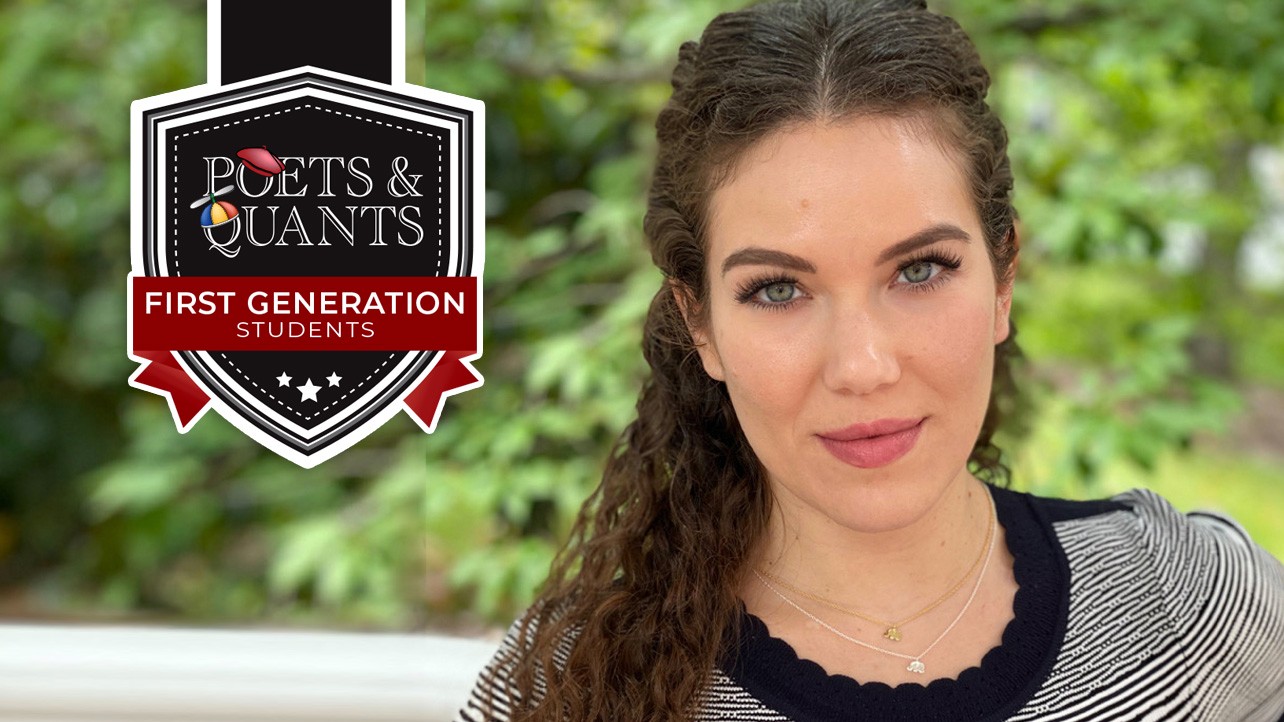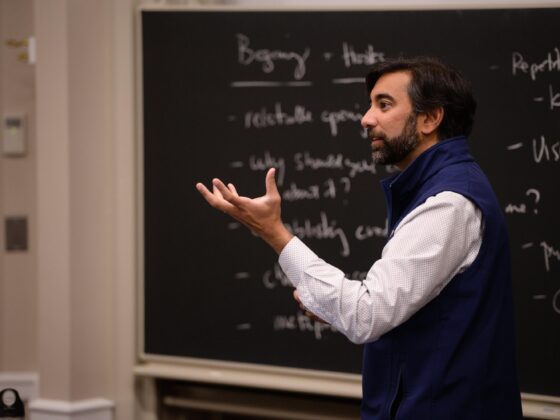MBA-focused publication Poets & Quants recently profiled up and coming first-generation MBA students from across the country, including Darden’s own recent graduate Ana Flavia Dias (MBA ’20). Dias was born in Brazil and grew up in the Bay Area where her parents cleaned houses and she attended UC Berkeley as a day student, earning her Bachelor degree in chemical engineering. Her story is one of incredible perseverance. Dias shares more about how she approached higher education, the inspirations around her and advice for other first-generation students considering an MBA.
Read on to view a just few highlights from Dias’ P&Q profile.
Hometown: Anapolis, Brazil and San Francisco Bay Area
Pre-Darden: I was working as an Operations Supervisor at ChemTrade Logistics, a sulfuric acid plant.
Post-Darden: I’m currently working as a project manager for Facebook.
What was the moment that led you to decide to pursue higher education?
I wish I knew so that I could recreate that moment for others. I think it was a combination of three factors:
1) During summers in high school, instead of visiting colleges or taking SAT classes, I went to work with my mom cleaning houses. They were often huge houses in San Francisco and most had walls decorated with several diplomas, many of them were MBAs. So I began to associate greater life opportunities with education from a young age.
2) By nature, I love a challenge. If you tell me I can’t do something, I will work harder to achieve it. Growing up, my mom and I spent more time designing my wedding dress than we did talking about college or having a career. I was raised to be a wife and a mother. And I was quick to notice that the rules I had to follow were different from my brother’s. So I chose to challenge everyone’s preconceptions, and realize my own expectations.
3) Luck. Even though our family had our fair share of obstacles (when we first got to the USA, I was one of ten people in a 2 bed/1 bath apartment), I never had to worry about my next meal or where I would sleep at night. My parents were brave enough to come to a country they knew nothing about that spoke a language they didn’t speak so they could give my brother and I more opportunities. I didn’t choose that. They chose that for me. No matter how many “moments” present themselves, had I not been born to my parents, I wouldn’t be where I am today.
What didn’t your family understand about the higher education experience that you wish they would understand better?
It’s not only about putting your head down and doing the work.
There are a lot of nuances and networking involved to achieve success. It’s not just about school, there are also so many extra-curricular activities and social events where attendance may not be required but is expected. It was difficult for my family to understand that I wasn’t partying when I attended four networking events in one week. The work doesn’t end when class ends. It’s also difficult for them to come to terms with the fact that following the opportunity sometimes means time away from family. To say my dad was adamantly against me moving away to pursue my MBA is an understatement. But he was still proud once I graduated and realized all the doors an MBA can open.
How did you choose your MBA program?
I had a few priorities when choosing an MBA: I wanted to attend a program that was consistently ranked top 20 across the board, I wanted a tight-knit community, and I wanted to work on my soft skills.
After experiencing what it’s like to be a part of a large school, I wanted to be a student in a school where I recognized everyone’s face. Darden’s case study method and required core and learning team create a collaborative environment that teaches you to think on your feet and to eloquently and effectively articulate your ideas and reasoning through practice. In essence, it best mimics the corporate world and teaches you the emotional intelligence you need to be an impactful leader. I’m happy that Darden checked all three boxes. A bonus: the professors really are as good and approachable as they say! Believe the hype.
How were you able to finance your MBA as a first generation student? I was fortunate enough to receive a full-tuition, merit-based scholarship from the Darden Foundation, for which I am extremely grateful. Dean Beardsley has dedicated a lot of energy during his tenure to increasing funds devoted to scholarships because he knows that having an affordable education increases the diversity of the student body. Thereby, he can create a richer experience for all the students, which enables them to take on greater risks like starting a business. An affordable education is especially important for students who don’t have a safety net, like most first-generation students.
What advice would you have for other first-generation college students?
KEEP GOING. It will be tough. You’ll often be the only one at school and work. And when you get home, you will also be the only one. You’ll feel alone. You’ll have the unique experience of not belonging to either world and belonging to both worlds at the same time. You won’t feel understood in either world. You’ll have to work harder than your peers. The list of obstacles can feel endless. But someone has to be first, and you have the opportunity to make sure that someone is you.
Read the full story on Poets & Quants.
Be sure to consult the Latest News regularly for the most updated news releases and media hits. Check out faculty thought leadership published on Ideas to Action. And stay connected with us via social media: Facebook, Instagram, LinkedIn, Twitter, WeChat.





